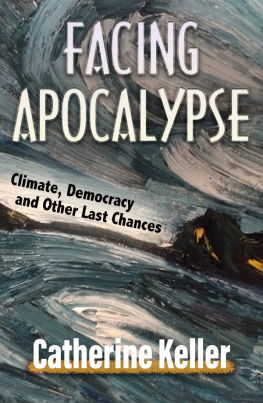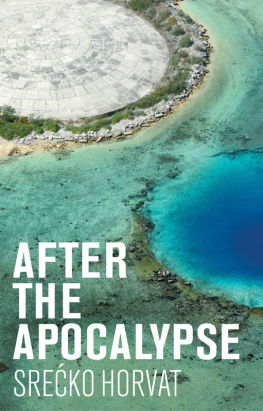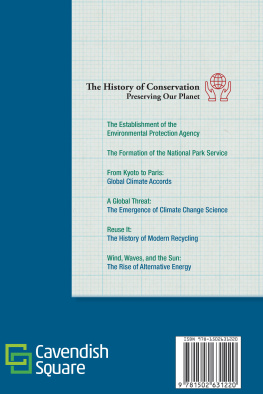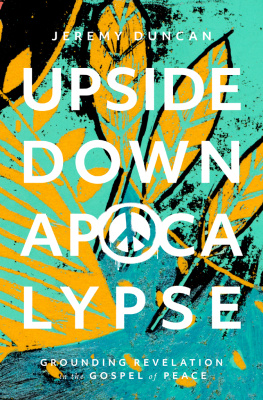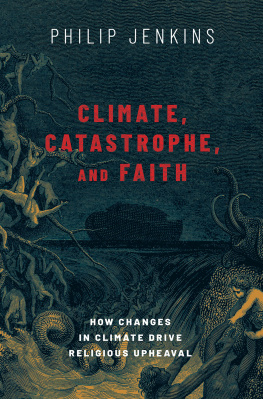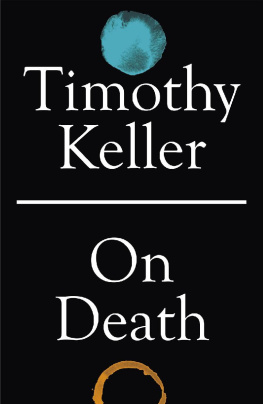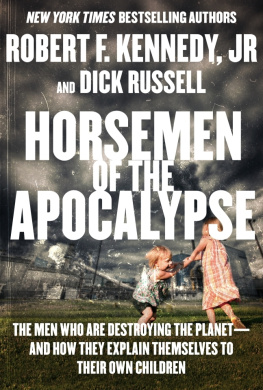Acknowledgments
No doubt I must first of all thank old John of Patmos for writing his darkly hopeful Apocalypse a couple thousand years ago. Despite the endless texts about his text (and now another) his spirit is not laid to rest. It haunts history. Since we fail to exorcise his ghost, we may exhort its cooperation. May we continue to call upon his better angelsthere are some awful onesto inspire gracious realizations of the vision. World-realizations, beyond any books about the Book of Revelation.
Yet for this book, most of my gratitude goes to a great host of live and enlivening readers.
I got indispensable support from present and former students. O'neil Van Horn passed crucial gems of song and poetry my way. As research assistants, Hunter Bragg offered innumerable revealing insights; Dan Siedell tendered relevant aesthetics; Winfield Goodwin contributed disclosive tidbits. Byron Belitsos, an author tuned to benign celestials, offered on-the-ground publishing wisdom. And without J. D. Mechelke, who carried with rigor and cheer a great burden of editorial and bibliographic labor, who knows when I would have finished the manuscript?
Friends facilitated this writing at every stage. Early on, Deb Ullman and Cynthia Beebe helped me consider nontheological, nonacademic readers. Despite my lack of Sanskrit, Loriliai Biernacki lent early and breath-deepening insights. Marcia Pally, a most relational political theologian, offered a crucial reading of the manuscript. My friend of four decades, feminist literary scholar Mary DeShazer, kicked in when the book most needed her, speedily enhancing the language and lucidity of last drafts.
In a category all his own, Sam Castleberry burst into the forcefield of this project. With brilliant insistence he commented upon one version, and then another, andwhat a gift.
Underneath it all lies the support of the Association of Theological Schools, permitting mewith the encouragement of Dean Javier Viera and Drew's Theological Schoolthe privilege of a Henry Luce III Fellowship in Theology for 20172018. Thanks to Stephen Graham and Jonathan van Antwerpen for their crucial theological leadership, and for memorable conversations with fellow Fellows Bill Brown and Emmanuel Katongole, as well as formal respondent John Thatamanil, friend and theologian extraordinaire.
The sine qua non of publication is of course the publisher. This book has been enhanced in content and form by the multi-orbed involvement of Robert Ellsberg of Orbis Books. Let me thank also the crucial contributions of Paul Kobelski and of Managing Editor Maria Angelini.
And from Jason, partner through whichever apocalypses come our way, streams a music beyond language.
1
O Clouds Unfold
Dreamreading the Apocalypse
Look! He is coming with the clouds.
Revelation 1:7
T here's a cloud floating in, disarmingly fluffy. It curls sunshine into glowing shadows. As you stare, the soft mass shifts majestically. It seems to be sweeping in; you can't tell how fast. Keep watching. The cloud morphs into cumulus curls, into white, wooly hair upon a darkness smooth as skin. Like a tongue, like a sword, rays pierce the cloud. It turns into one big wooly lamb. As the four-legged cloud swells in poignant dignity, the setting sun bleeds red across its fur.
That is one way to paraphrase the first three appearances of the Messiah in the biblical Apocalypse.
Or then again, if you are interested, I will cite chapter and verse. But why would you be? You may occasionally use the term apocalypse to voice your rising fear for the world, but you are just using a common metaphor for macro-catastrophe. You are probably not alluding to the Book of Revelation. And whatever you think about the Bible, odds are (since you have gotten this far) you are no Left Behind fan, eager to be raptured up to those We just don't have another word with quite the cataclysmic oomph of apocalypse. It captures the drama of unprecedented threats to human civilization and to planetary health. And anyway, to say this is an apocalyptic moment is not necessarily to trumpet The End of the World.
No, not necessarily. An alarm is not a requiem. But chances may be looking lousy for the persistence of the world-as-we-know-it. And just what do we know, anywayeven if we accept, for instance, the climate science? Those who don't can drift with the prevailing denialism. But many of those who get the science now sink into a savvy nihilism. They see hope as delusional, and so surrender to the spiral of our species self-destruction. I'm imagining, however, that you do not rule out the possibility of a livable planetary futureone even including humans. The possibility: if, against considerable odds, some collective upsurge of urgency prevails. Before our planetary emergency goes total.
I'm with you.
To help each other out of the sleepily creeping patterns of species suicide, without just waking into despair: this motivates a dreamreading of our apocalypse. And with it, of the Apocalypse. Let the lower case signify the perilous present context, and the upper, the two-millennia-old text. But why put our present tense in touch with the strange surrealism of the ancient Apocalypse? Because it is already at work in current history; and more importantly, because our reading of the connection will help to awaken a collective possibility. Such possibility does not drift on the surface of day-to-day normalcy. Nor do our chances offer themselves as commodity choices. They appear increasingly as last chances. Not Endtimes but narrowing options.
The ancient script has somehow not exhausted itself, even after century upon century of false Endtime predictions. As a literary critic once put it, Apocalypse can be disconfirmed without being discredited. This is part of its extraordinary resilience. Indeed, beneath the hyper-familiar clichswarrior Christ, Last Judgment, pearly gatesthe original Apocalypse surprises. It reads more like a waking dream than a plan for history. We will observe how its phantasmagoric metaphors of unresolved trauma and unrealized healing open into tensions of present history: our present. If in the irony of a vast anachronism we let our own grief, concern, and curiosity into our reading, the process may prove darkly disclosive.
In recognizing an ancient history as somehow still our own, its darkness yields more than nightmare. A cloud of roiling possibility seems to reveal itself. It seems barely distinct from impossibility. It guarantees no happy ending. It may, however, enhance the uncertain chance of better outcomes. It is for the sake of that chance that we might practice, in and beyond this reading, an apocalyptic mindfulness. Such darkly glowing possibility might justify, even invite, reconsideration of this long letter of John of Patmos, this Apocalypse, in the archaisms and in the futures of its dizzying metaphors.
We will spiral between the text of the Apocalypse and our own context, with its apocalyptic charge. The ancient text reads the crisis of its own historical context. It does not know or predict ours. But it discerns certain patterns in its own world deep enough to persist, dangerously, and perhaps disclosively, into our own. To mind those patterns without literalizing them means to dreamread collective crisis now, by way of the metaphorsthe metaforceof the Apocalypse then.
1. Armageddonesque
The narrative metaforce of the Apocalypse fires up effects secular as well as religious, fictional as well as historical. Consider for instance Kim Stanley Robinson's novel New York 2140, an important development of the literary genre of climate fiction (cli-fi, as distinct from sci-fi). A twenty-second-century character referred to as that citizen comments sardonically on the two Pulses of catastrophic coastal flooding that the planet had undergone at the end of the twenty-first century:

